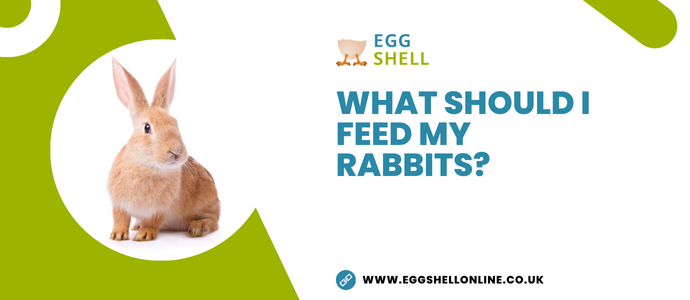To help keep rabbits healthy and entertained, you need to think carefully about what you will feed them. A varied diet will help to keep your rabbits healthy for a lifetime. Their food selection will also influence other health factors such as their oral health and digestive health.
While there are some things you should definitely be feeding to your rabbits, there are also some seemingly innocent things that could be toxic. It’s important to regularly check their enclosure for items that could turn out to be bad for their health and also educate children about what they can and cannot feed their pet rabbits.
The following items should absolutely feature in your rabbit’s diet…
- Hay or grass
Around 80-90% of your rabbit’s diet should be hay or grass. They should have a steady supply of fresh hay or grass throughout the year. You can buy large bales of hay to keep throughout the winter and this will make up the bulk of their diet.
If possible, allow your rabbits to graze on growing grass. Never feed them lawn mower clippings as this can make them very ill. They should also have fresh hay added to their hutch daily.
- Vegetables
Adding vegetables to your rabbit’s diet can help to enrich their enjoyment while also ensuring they get the right mix of vitamins and minerals. The ideal vegetables to feed your rabbit include cabbage, kale and broccoli. They can also have small amounts of carrots. Always introduce new vegetables gradually and monitor to see which ones they prefer.
- Fruits
Fruits are high in sugar and so they should be offered as a rare treat. Rabbits can have fruits like apples (seeds and stem removed), blueberries, kiwi and apricots as a rare treat.
Consider giving your rabbits fruits without the seeds and stalks no more than once or twice a week. You’ll soon learn which fruits your rabbit loves the most. Most rabbits love bananas, but these are quite high in sugar so they should be reserved as a rare treat.
- Herbs and weeds
Certain herbs and weeds can help to bring variety to your pet’s diet. Popular herbs and weeds to feed your rabbit include parsley, bramble, dandelion, hawthorn, plantain, sow thistle and willow.
Herbs like mint, lemon balm, dill and coriander offer a range of health benefits, including antioxidant and anti-inflammatory properties. Herbs can also bring variety and flavour to your rabbit’s diet and this can be very enriching.
- Rabbit pellets
Your rabbit can enjoy a small amount of specialist rabbit pellets daily. Steer clear of the muesli-style feed as this can be very unhealthy for rabbits. Instead, choose a high quality pellet and make sure you follow the manufacturer’s feeding guidelines. You’ll need to adjust your rabbit’s diet according to the other treats and supplementary food they might receive.
- Treats
Occasional treats can help to keep your rabbit’s teeth healthy and will also aid in training and bonding. To help keep your rabbit stimulated, you can mix their treats in with foraging material. This will keep them busy and encourage them to stay active and engaged.
Foods to avoid
Certain items are highly toxic to rabbits and should be avoided at all costs. These include:
- Avocado
- Chocolate
- Seeds and pits from fruit
- Mushrooms
- Raw potatoes
- Raw onions, leeks and garlic
- Meat, eggs, dairy
- Rhubarb
- Iceberg lettuce
- House plants
- Any processed food like bread or pasta
- Broad beans and kidney beans
Rabbits are eating machines and will much their way through anything they come across. To help avoid a trip to the vet, keep your rabbits secure in a hutch or rabbit run to help keep them away from bins.

